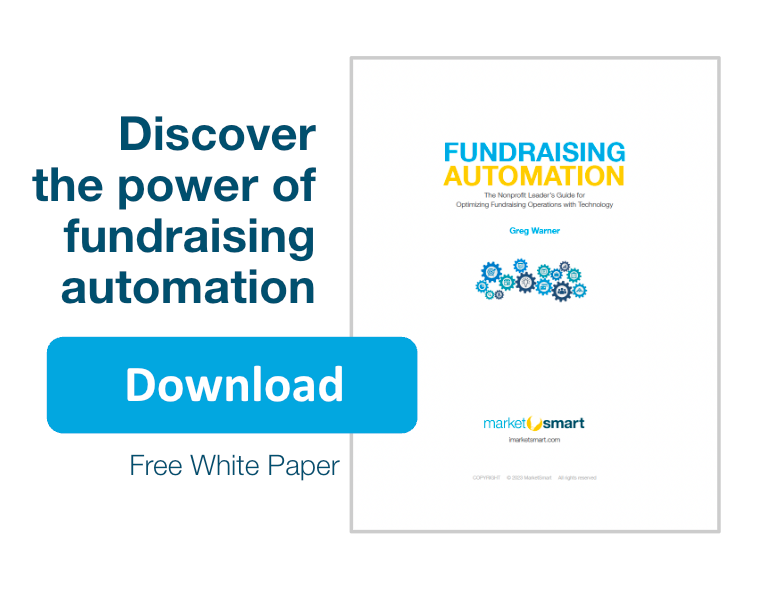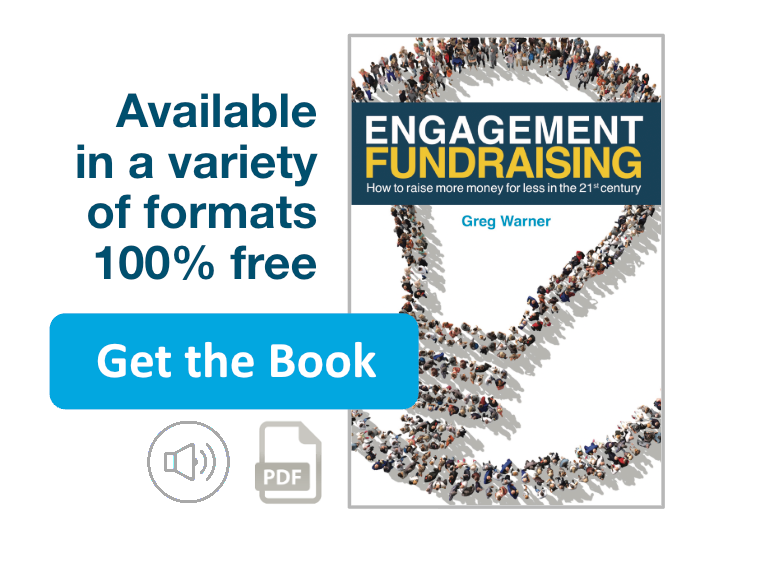In my previous article, which you can read here, I outlined three challenges wealthy people face when they start exploring the idea of giving away large amounts of money: they don’t feel financially secure, they get judged harshly for their wealth, and they haven’t learned how to be philanthropic. Next, let’s look at three ways in which you can help donors get more comfortable and build the relationship that will move them towards large donations.
1. Learn to Identify and Empathize with the Wealthy
Curiosity and interest are good for conversation. Assumption, envy, and minimization will kill an otherwise great visit.
Learn to be curious about your wealthy donors and prospects (just be sure to ask for permission first). After all, they are real people. Humanize them by asking questions about their wealth. The truth is that most wealthy people enjoy talking about money, because there’s a lot you can do with it. Plus, they spend a lot of time thinking about their wealth, including how to maintain it, grow it, or put it to good use.
Don’t be afraid to be curious. After gaining permission to do so, ask them questions like the following:
- How did you feel during the last market meltdown?
- What did you do?
- Who helped you, or did you make your decisions on your own?
- Have you ever felt nervous about your wealth?
- Do people treat you differently because of your wealth? How do you deal with that?
- How do other people in your life relate to you, especially those who knew you before you were wealthy?
Or
- How did you build your business?
- What gave you the idea to start your business?
- Were you afraid in the beginning?
- What challenges did you face on your journey?
- What was it like when you reached a particular financial milestone?
Talk with them about investment preferences and opportunities. Talk about good and bad financial decisions. Ask them about their financial advisor. Ask how they handle taxes, and discuss things like the estate tax. That doesn’t affect most people, but it does affect them.
Listen. Empathize. They are real people with real problems, just like you.
And when it comes to giving, position yourself as a guide, a counselor, and an advisor who wants to help them make good decisions and have a great experience, just like their attorney or any other trusted advisor.
This is a good phrase to use:
“I help people like you give in a thoughtful, deliberative way that is smarter. That’s my job! And I’m happy to do it for you.”
That kind of language positions you as a trusted partner. It shows that you have empathy. You understand them, care about what matters to them, and understand their reservations about giving large gifts.
2. Change the Conversation from Giving to Meaning
Because so many wealthy people are initially bad at philanthropic giving, they end up stuck on the hamster wheel of transactional, low-dollar giving.
They write checks now and then. They attend fundraising events and give a few thousand dollars. Then they go home, and nothing changes in their life. Their gift didn’t affect them.
And they have no idea how much more giving can do for them, let alone for the people it will help.
Your goal is to change the conversation from a focus on giving to an emphasis on what large gifts will mean to the donor.
They need a counselor to help them find meaning in their lives. Not a beggar, pleader, guilt-tripper, shamer, or yet another entitled brat who thinks they or their organization deserves the money.
Position yourself as their guide to meaningful, transformative giving.
You do this by helping them, as charitable giving Hall of Famer Dr. Russell James would say, discover and advance their own donor hero story.

Be warned, though:
When you change the conversation to focus on meaningful giving, you may have to start talking about DAFs, stock options, tax minimization methods, and things that offend some in the nonprofit world.
Nevertheless, to do anything other than that is to impose your own worldview on theirs. And that’s not how empathy works.
Often, a wealthy donor’s first gift is like an audition. If you give them a great experience and show them how you can help them find meaning in their lives, they will come back with bigger and more transformative gifts.
If you learn to connect with them in an authentic way, you will pass the audition and gain a friend in the process.
3. Tell Stories of Other Wealthy Donors
Lastly, you can help them understand the nuts and bolts of giving by sharing stories of other wealthy donors. In the business world, these would be called case studies or testimonials. Use that language with them.
Show them how other donors gained great personal satisfaction from giving and discovered the best version of themselves. That’s powerful stuff — finding personal meaning and fulfillment. Yes, even wealthy people care about that. A lot.
Show examples of how others have leveraged tax benefits as part of giving. Talk about how giving affected their investments and their overall net worth. Offer resources to inform, educate and support their decision-making process.
The idea here is to demonstrate that your counsel and collaboration with other wealthy donors produced big wins for everyone — including, most importantly, the beneficiaries of the gift.
Good stories of other donors can reveal how the finer details of giving can work, and at the same time, inspire and motivate the donor to want to make transformative gifts. They will think, “Because someone like me has given and had such a great experience, I can give too.”
When they think that, everyone wins.
Related Posts:
- The Truth about Wealthy People and Philanthropy Should Affect Your Fundraising… But Does It?
- Why wealthy people care about cost even when it comes to philanthropy
- Are you chasing wealthy people or philanthropists?
- Your donors want to find meaning in their lives. But are you helping them?




